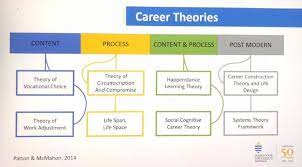
There are a few things to consider when changing industries. You must first determine why you are changing your field. After you've identified the reasons why your field needs to be changed, narrow down your list to just one or two. Make sure to be specific, and focus on the positive changes. Additionally, this helps identify your transferable talents.
Transition to a different industry
First, identify the industry in which you want to work. Once you've identified the industry you wish to work in, it is possible to contact your existing contacts and find out what jobs they have. You can reduce stress by having a plan. This will help you to identify your gaps and skills. Plan will also help identify the role you are most passionate about.

Understanding the nature and impact of industry change
You can identify the right time and the nature of industry changes to help you formulate effective strategies. Four main paths are used to track industry change. These trajectories establish the boundaries of what is likely to generate profits in an industry. You won't find the right innovation strategy for every company. However, by understanding the nature change in your industry you can identify which strategies and approaches might work best.
Identifying transferable skills
There are several things you need to take into consideration when you're looking for a job in a different industry. First, assess the pace of change in the area you are interested. Next, find transferable skills that you can use in the new field.
Adapting and adapting to change
Companies that are able to adapt to changes will remain competitive in a changing business environment. For example, a company's offerings could change in a year, or customer demand might shift completely. Market research can help companies adapt to changes in the marketplace. Other factors that can impact a company's ability for adapt include legal regulations and the availability of resources.
Changes in industries pose risks
With changing industries and risks, risk management is becoming increasingly complex. While many risks are slow-moving and easily managed, some are rapidly escalating and become a matter of reputational risk. These changes will have an impact on the competitive environment and market structure. They will also affect the success of businesses in the future.

Retrospective
It can be a wise decision to take a step back in times of change. This can help people to grow professionally. If a skilled technical specialist is interested in a managerial role, but does not enjoy leading others, this could be an example. While career changes can be beneficial, admitting that you are not ready for the challenge is hard. Although you may be worried and stressed about your professional future there are steps that can help you achieve your goals.